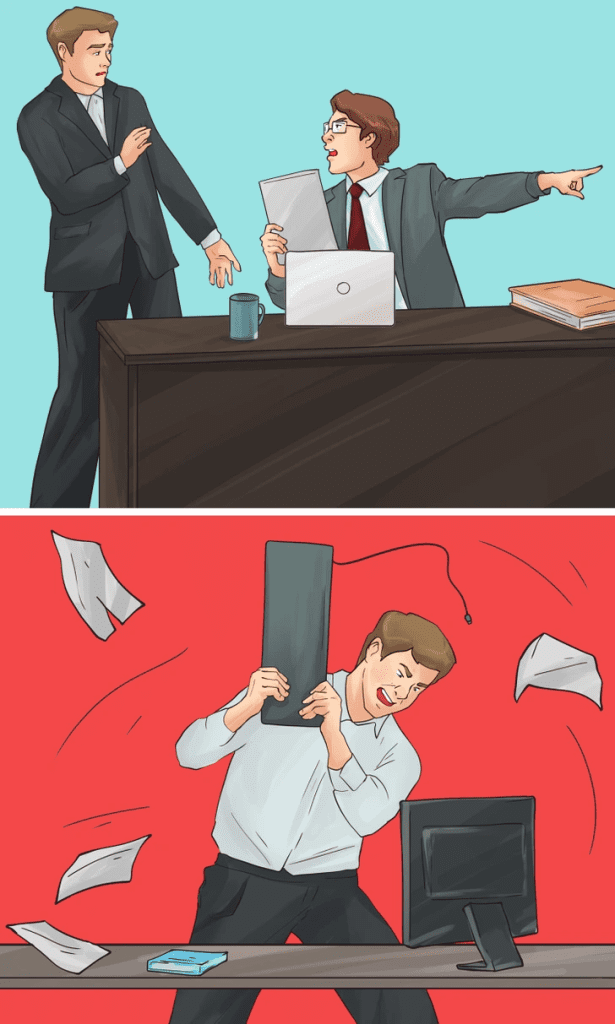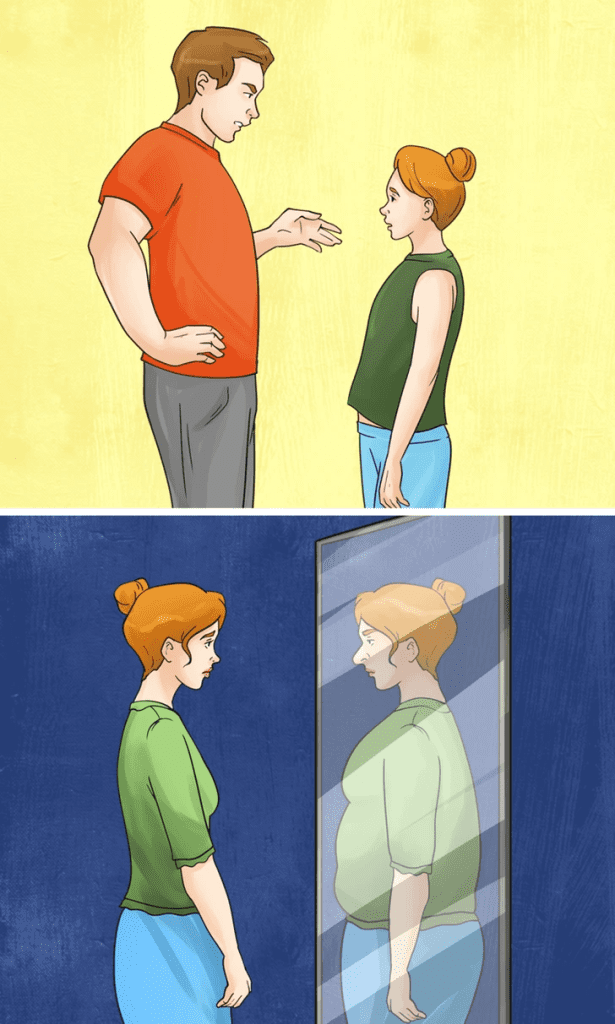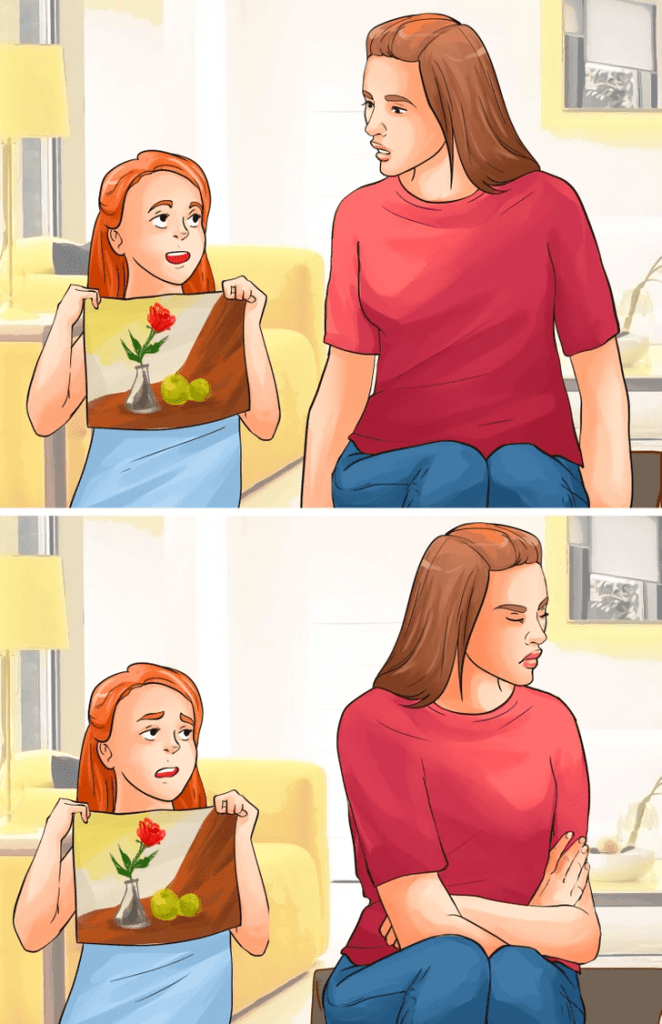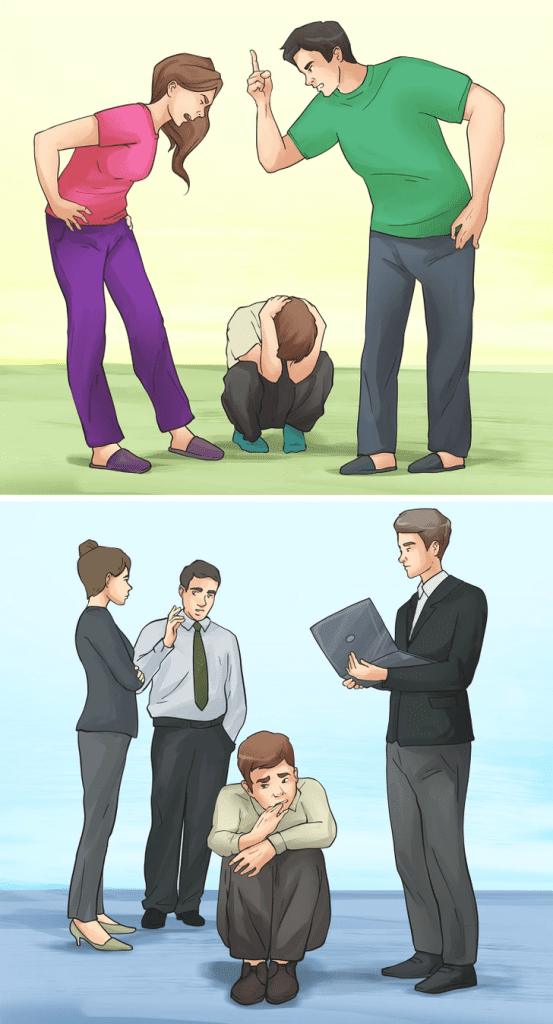
Not every parent knows how to love the right way. Some are too wrapped up in their own pain, ego, or control issues to recognize the damage they’re causing their kids. And the sad truth? Those emotional wounds don’t magically heal when you grow up. They stick around—shaping how you see yourself, how you connect with others, and how you deal with stress.
If you ever felt like you were walking on eggshells as a kid, constantly trying to please or never feeling good enough, chances are you were raised in a toxic environment. Let’s take a closer look at how this upbringing affects you now—and what it really means when you carry childhood trauma into adulthood.
Video:
8 Things Parents Shouldn’t Say to Their Child
You’re Terrified of Being Controlled or Manipulated
Toxic households often run on control—silent treatment, guilt trips, or constant reminders of how much you “owe” your parents. That kind of manipulation doesn’t just go away. As an adult, you probably find yourself hypersensitive to people trying to influence your choices.
Maybe you overreact to advice or feel defensive even when someone’s genuinely trying to help. That’s your survival instinct kicking in, trying to protect you from being emotionally used again.

You Don’t Trust People Easily (or At All)
Growing up with unpredictable, emotionally unavailable, or volatile parents teaches you that relationships aren’t safe. So now? You assume everyone has a hidden agenda. You hold back. You wait for the other shoe to drop.
You might even sabotage healthy relationships because deep down, you don’t believe people can love you without hurting you. You weren’t taught that safety was possible—so you don’t expect it.

You Have an Extreme Fear of Failing

If your parents only praised you when you performed well—or worse, punished you when you didn’t—you probably equate failure with shame. Mistakes feel like personal disasters. You freeze before trying something new. Or you push yourself to the edge just to meet impossible expectations.
This isn’t about being ambitious. It’s about being afraid that if you’re not perfect, you’re worthless.
Video:
10 Traits of Toxic Parents Who Ruin Their Children’s Lives
You Don’t Know Who You Are or What You Want
Toxic parents don’t leave much room for individuality. They want you to think, feel, and act how they see fit. If you had to suppress your true personality just to keep the peace, you likely lost touch with your own identity.
Now you might struggle to make choices, set goals, or understand what genuinely makes you happy. Because for years, your desires weren’t your own—they were controlled or dismissed.

You Criticize Yourself Constantly
Remember those little jabs? “You’ll never be good enough.” “You’re too sensitive.” “No one will ever love you like I do.” These words don’t just disappear. They live in your head as that harsh inner voice that judges every move you make.
You second-guess yourself. You apologize for existing. You compare yourself to others and always come up short. It’s like your parents handed you a mirror that only shows your flaws.

You Suppress Your Emotions to Keep the Peace

When expressing your feelings as a child only led to punishment, mockery, or rejection, you learned to shut them down. You stopped crying, stopped asking for help, stopped showing when you were upset.
Now, you probably struggle to even identify how you feel, let alone express it. You bottle things up until they explode, or you become numb. And when you do finally open up? You feel guilty for making it about you.
You Still Feel Like a Child Around Certain People
If your parents refused to let you grow up—constantly criticizing your independence or making you feel incapable—you might still feel stuck in that powerless role. Even now, as an adult, you may struggle to make decisions without second-guessing. You might crave validation for the simplest things.
When you’re around authority figures, you shrink. When someone challenges you, you fold. It’s not because you’re weak—it’s because you were never allowed to feel strong.

You Experience Anxiety That Doesn’t Seem to Have a Cause
Kids raised in chaotic homes often grow up with chronic anxiety. When you never knew whether your parent would scream or stay silent, hug you or ignore you, your body learned to live in fight-or-flight mode. That becomes your default setting—even in calm situations.
You might feel anxious in crowds, before a conversation, or even when things are going well—because part of you is always waiting for the chaos to return.

Here’s the most important thing to understand—you didn’t ask for any of this. The self-doubt, the fear, the overthinking, the emotional numbness—it didn’t come from nowhere. It came from trying to survive a childhood where your emotional needs weren’t met.
But now? You have a choice. You can unlearn the pain, challenge those inner voices, and build a life where your feelings matter. Healing doesn’t mean pretending it never happened—it means learning that your past doesn’t have to define your future.
You are not your trauma. You are not your parents’ mistakes. You are worthy of love, stability, and peace.


